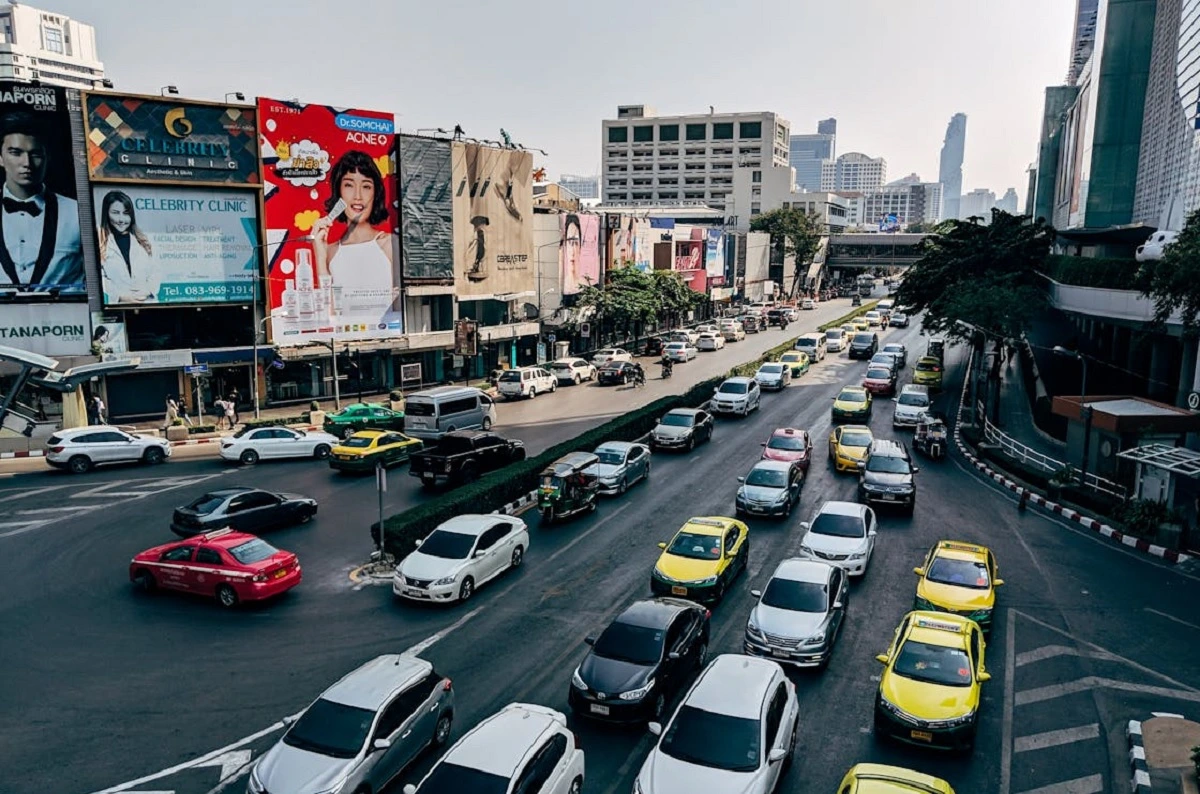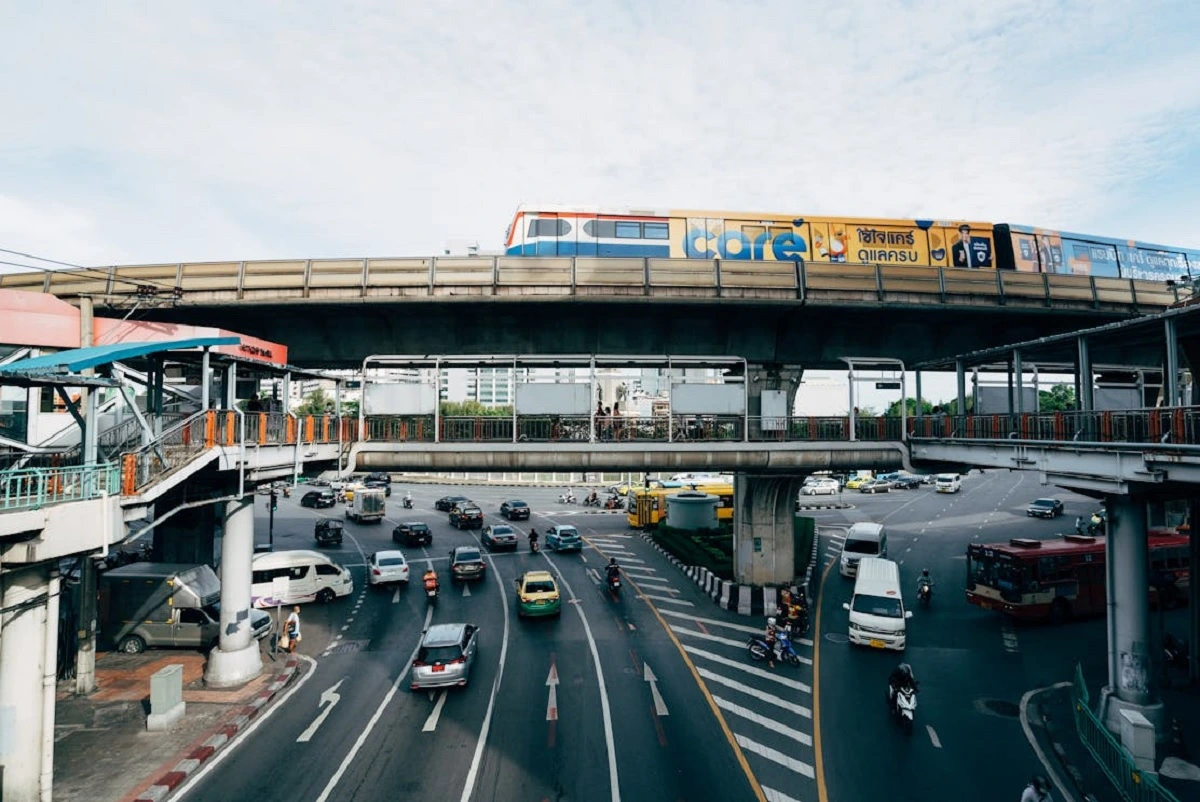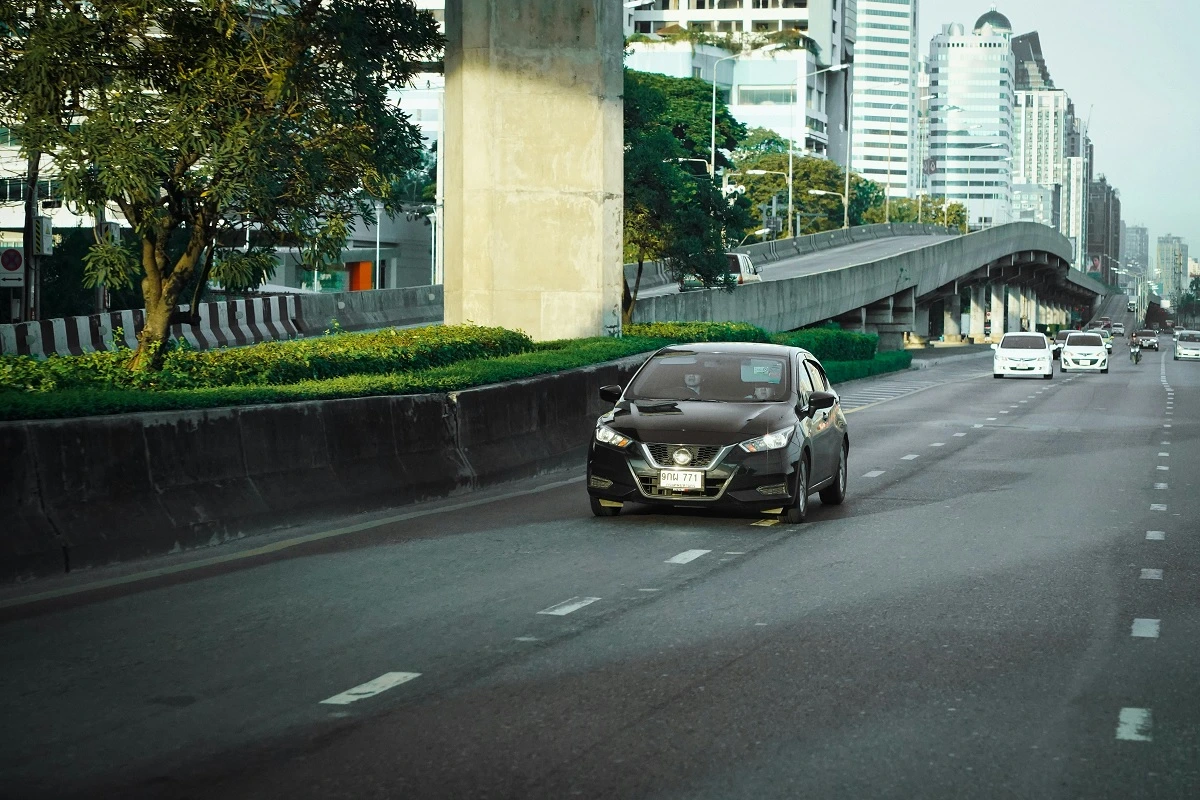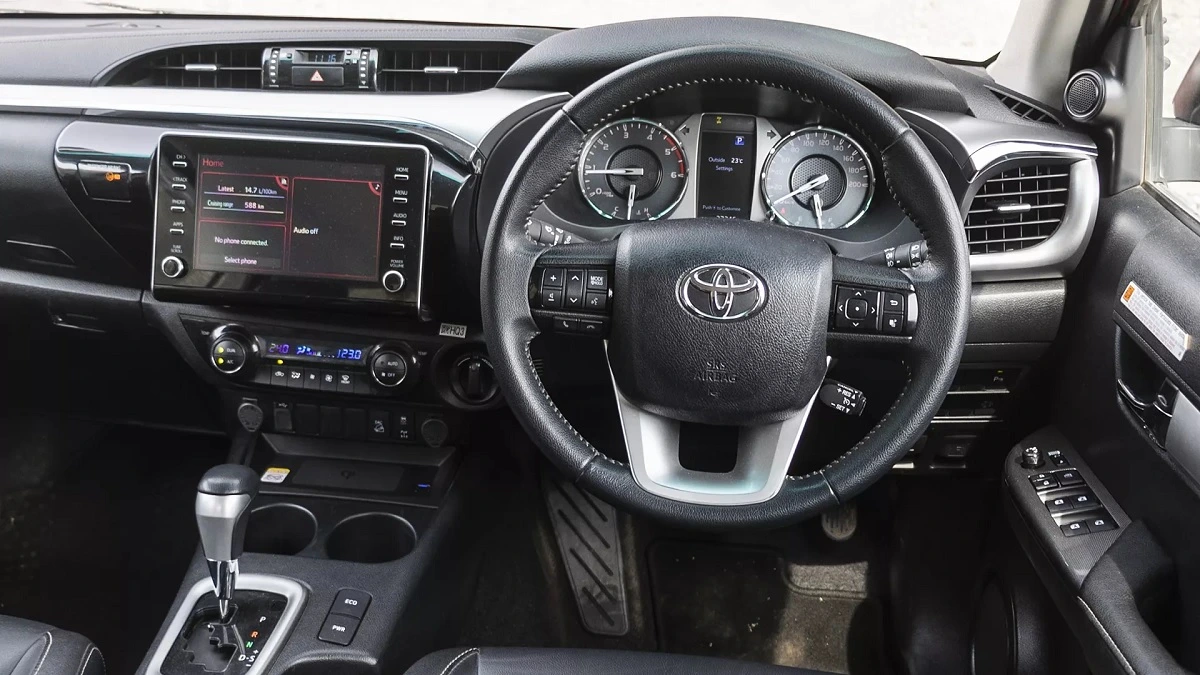Are cars cheap in Thailand?

Thailand’s automotive market is unique, influenced by various factors such as import taxes, local manufacturing, and government policies. While you might find some great deals, it’s essential to understand the nuances that affect car prices here. From brand-new models to second-hand vehicles, the cost can vary significantly.
Before making a decision, it’s crucial to weigh the pros and cons and consider your budget. Whether you’re an expat settling in or a local looking for an upgrade, knowing the ins and outs of Thailand’s car market will help you make an informed choice. Let’s dive into the details to see if buying a car in Thailand is as affordable as you hope.
Overview of car prices in Thailand
Car prices in Thailand are influenced by various factors. Import taxes play a significant role. Imported cars are subject to high duties, which increases their cost substantially. It’s common to see prices much higher compared to other countries.
Local manufacturing affects pricing too. Cars assembled in Thailand benefit from lower tax rates, which can make them more affordable. Brands like Toyota and Honda have local plants, leading to competitive prices for specific models.
Government policies also impact prices. Incentives for eco-friendly cars, such as hybrid and electric vehicles, can reduce the overall cost. These policies aim to promote greener transportation options.
The market offers a range of options. Compact cars, for instance, are relatively cheap and popular in urban areas. Luxury vehicles, on the other hand, come with a hefty price tag due to high import duties.
When considering buying a car, it’s vital to factor in the total cost of ownership. This includes registration fees, insurance, and maintenance. Thoroughly assessing these expenses will help you determine if purchasing a car in Thailand is worthwhile.
Prices of famous cars in Thailand
| Car Name | Model | Price Range (THB) |
|---|---|---|
| Toyota | Hilux | 1,000,000 – 1,200,000 |
| Isuzu | D-Max | 686,000 – 1,050,000 |
| Toyota | Yaris Ativ | 600,000 – 700,000 |
| Honda | City | 700,000 – 800,000 |
| Toyota | Fortuner | 1,400,000 – 1,500,000 |
Comparing new and used car prices

New cars
New cars, often favoured for their reliability and latest features, come with a higher price tag. Import taxes increase the cost significantly. Locally manufactured cars such as Toyota and Honda are more affordable due to lower taxes and government incentives. For example, an entry-level Toyota Yaris might cost around 550,000 THB, while a similar import could exceed 1,000,000 THB. Besides the initial cost, you should also consider registration fees and insurance, which are generally higher for new cars.
Used cars
Used cars can be a more economical choice if you need a vehicle in Thailand. The initial cost is usually lower, but you must account for potential maintenance expenses. Popular models like the second-hand Honda City can be found for about 300,000 THB, providing excellent value. It’s essential to conduct a thorough inspection to avoid unexpected repairs. While older models may not have the latest technology, they often come at a fraction of the cost, making them a viable option for budget-conscious buyers.
Comparing these two options helps you decide which aligns better with your financial goals and needs in 2024. With this comprehensive outlook, you can make a more informed choice between new and used cars without overlooking the unique factors affecting the Thai automotive market.
Overview of Car Prices in Thailand
| Type of Vehicle | Price Range (Baht) |
|---|---|
| New Cars | 500,000 – 2,500,000 |
| Used Cars | 50,000 – 1,000,000 |
Cost of Ownership
Owning a car in Thailand involves more than just the purchase price; several ongoing costs must be considered:
Fuel costs
Fuel prices are generally lower than in many Western countries due to government regulation. Gasohol 95 (the standard fuel) typically ranges from 33-43 baht per litre. This affordability makes driving more economical compared to countries with higher fuel prices.
Electric vehicle costs
In Thailand, the cost of charging electric vehicles (EVs) varies by provider and time of day. Typically, charges range from 4.5 to 7.5 baht per kilowatt-hour during off-peak and peak hours, respectively. On average, EV users can expect to pay 0.72 to 0.95 baht per kilometre for charging, making it a cost-effective alternative to traditional fuel vehicles.
Insurance
Car insurance is mandatory and comes in two types: compulsory third-party insurance and optional comprehensive coverage. Basic third-party insurance costs around 650 baht ($20) annually but does not cover vehicle damage.
Maintenance
Maintenance costs are relatively low due to affordable labour rates. However, it’s advisable to budget around 10,000 baht ($300) annually for basic upkeep on a used vehicle.
Taxes and registration fees:
Vehicle tax in Thailand is calculated based on engine size. For example:
| Engine Size (cc) | Tax Rate (Baht per cc) |
|---|---|
| Up to 600 | 0.50 |
| 601 – 1800 | 1.50 |
| Over 1800 | 4.00 |
Additionally, there is an annual registration fee that varies depending on the vehicle’s age and type.
Factors influencing car prices

Several elements impact whether cars are cheap in Thailand. These factors determine how much you’ll pay, influenced by import tariffs, local taxes, and demand and supply dynamics.
Import tariffs
Import tariffs heavily affect car prices in Thailand. High tariffs on imported cars make them more expensive. The government imposes these tariffs to support the local automotive industry. Consequently, luxury and high-end brands coming from abroad often come with elevated price tags.
Local taxes and fees
Local taxes and fees also play a crucial role. In Thailand, cars face excise taxes, VAT, and registration fees. For example, excise taxes vary based on engine size and carbon emissions. Smaller, eco-friendly cars incur lower taxes. As a result, they tend to be more affordable than larger vehicles.
Demand and supply dynamics
Demand and supply dynamics influence car prices significantly. High demand for specific models can drive up costs. Popular car brands like Toyota and Honda often enjoy strong local demand, sometimes affecting price stability. Besides, supply chain issues or manufacturing constraints can create shortages, also impacting pricing.
What more do you need to know about cars in Thailand

Is Thailand cheap compared to the UK?
When comparing car prices between Thailand and the United Kingdom, it becomes evident that Thailand generally offers more affordable options, particularly for locally manufactured vehicles. In Thailand, the initial purchase price of new cars is often lower than in the UK due to lower taxes on domestic models. For example, a new Toyota Corolla costs around 911,880 baht (approximately £20,846) in Thailand, while the same model can be priced significantly higher in the UK.
However, imported cars can be quite expensive in Thailand due to high import duties and taxes, which can range from 187% to 328% depending on engine size. A Mini Cooper that costs around 800,000 baht (£18,000) in the UK may reach up to 2.2 million baht (£50,000) in Thailand. Despite these high taxes on imports, the overall cost of ownership—including fuel, insurance, and maintenance—is generally lower in Thailand. Fuel prices are significantly cheaper, and insurance rates are more affordable compared to the UK.
We can say while some imported vehicles may be costly in Thailand, locally produced cars and the overall cost of ownership tend to be more economical than in the UK, making Thailand an attractive option for car buyers.
Is it okay to haggle in Thailand?
Haggling is generally acceptable when purchasing cars in Thailand, but the approach can vary depending on whether you are buying from a dealer or a private seller. In the case of used cars, especially through private sales on platforms like Facebook Marketplace or Motors.co.th, negotiating the price is common and often expected. Buyers can typically start by offering 40-50% less than the asking price and work their way up to a mutually agreeable figure.
However, when dealing with new car dealerships, prices are usually less flexible. Dealers often stick closely to the manufacturer’s suggested retail price, but you may find some room for negotiation on optional features or add-ons. It’s essential to be polite and friendly during negotiations, as maintaining a good rapport can lead to better deals. Ultimately, while haggling is part of the car-buying culture in Thailand, understanding when and how to negotiate effectively will enhance your purchasing experience. Always do your research on market prices beforehand to ensure you are making informed offers.
Is it a good idea to drive in Thailand?

Driving in Thailand can be a good idea, offering the freedom to explore the country’s diverse landscapes and vibrant culture. However, it comes with unique challenges that require careful consideration. The country drives on the left side of the road, which may be unfamiliar for those used to right-hand driving. Traffic can be chaotic, especially in urban areas like Bangkok and Chiang Mai, where motorbikes weave through lanes unpredictably.
Despite these challenges, many find that driving allows for greater flexibility in travel plans. Familiarising yourself with local traffic laws and road conditions is essential for a safe experience. Additionally, being aware of other vehicles, including motorbikes and soi dogs, is crucial. Overall, with proper preparation and an understanding of local driving etiquette, driving in Thailand can enhance your travel experience and provide unforgettable adventures.
What are the basic car rules in Thailand?
The main car rules to be aware of when driving in Thailand are:
- Drive on the Left: In Thailand, vehicles drive on the left side of the road, which may be unfamiliar for those from right-hand driving countries.
- Speed Limits: Speed limits are expressed in km/h: 80 km/h in urban areas, 90-120 km/h outside cities, and up to 120 km/h on highways.
- Seatbelt Requirement: Wearing seatbelts is mandatory for all passengers, including those in the back seat.
Alcohol Limit: The legal blood alcohol limit is 0.05%. Penalties for violations can include fines and imprisonment. - Mobile Phone Use: Using a mobile phone while driving is prohibited unless using a hands-free device.
Valid License: Drivers must carry a valid driving license and an International Driving Permit (IDP) if not from Thailand.
Can foreigners drive cars in Thailand?
Yes, foreigners can drive cars in Thailand, provided they meet certain requirements. To legally drive, tourists must possess a valid national driver’s license from their home country and an International Driving Permit (IDP), which translates their license into multiple languages. The IDP is often required by car rental companies.
Additionally, drivers must be at least 18 years old. While tourists can drive for short stays, those residing in Thailand for over 60 days are advised to obtain a local Thai driving license. Familiarising oneself with local traffic laws and road conditions is essential for a safe driving experience.
What is the average cost of a car in Thailand?
The average cost of a car in Thailand varies depending on whether you choose a new or used vehicle. For new cars, prices typically range from 500,000THB to 1,500,000THB. Popular models from manufacturers like Toyota and Honda are often found within this price range. In the used car market, prices can be significantly lower, with older models available for under 50,000THB. This affordability makes car ownership accessible to a wider range of consumers in Thailand. Overall, while new cars can be pricey due to taxes and duties, the availability of affordable used options is a significant advantage.
How much is a car tax in Thailand?
In Thailand, car tax varies based on the vehicle type and size, with annual fees typically ranging from 1,200THB to 8,000THB. The tax amount is determined by factors such as engine size and emissions. For instance, smaller vehicles generally incur lower taxes, while larger cars or those with higher emissions face higher fees.
Additionally, vehicles over seven years old must pass a mandatory inspection to qualify for tax renewal. This tax must be displayed on the vehicle’s front windscreen, ensuring compliance with local regulations. Overall, car tax in Thailand is relatively affordable compared to many other countries.
Is Thailand very expensive?
Living in Thailand is often viewed as affordable, and this extends to car ownership as well. While there are costs associated with maintaining a vehicle, they are generally lower than in many Western countries. Routine maintenance is manageable, with fewer required services for modern vehicles, especially electric ones, which have fewer moving parts.
Fuel prices are competitive, and insurance premiums can be quite reasonable, depending on the coverage chosen. Additionally, the availability of affordable used cars allows many residents to find suitable options without breaking the bank. Overall, while there are expenses involved in owning a car, the overall cost of living—including car maintenance—remains attractive for both locals and expatriates seeking a comfortable lifestyle in Thailand.
What is the most popular car in Thailand?

The most popular car in Thailand is the Toyota Hilux, a midsize pickup known for its durability and versatility. It consistently tops sales charts due to its suitability for both urban driving and off-road adventures, making it a favourite among Thai consumers. Following closely is the Isuzu D-Max, another robust pickup that appeals to those needing a reliable workhorse.
Other notable mentions include the Toyota Yaris and Honda City, which are favoured for their fuel efficiency and compact design, ideal for city commuting. Overall, these vehicles reflect the preferences of Thai drivers, who prioritise reliability, affordability, and practicality in their automotive choices.
Do you need insurance to drive a car in Thailand?
Yes, insurance is mandatory for driving a car in Thailand. All vehicles must have Compulsory Third-Party Liability Insurance, known locally as Por Ror Bor. This insurance provides basic coverage for injuries and fatalities resulting from road accidents, ensuring that victims receive compensation regardless of fault.
While compulsory insurance is affordable, it offers limited protection, primarily covering medical expenses and compensation for death or permanent disability. Many drivers opt for additional private insurance to enhance their coverage, which includes protection against theft, property damage, and more comprehensive benefits. Overall, having insurance not only complies with legal requirements but also offers peace of mind while driving on Thailand’s roads.
Other useful resources about automotive in Thailand
- Custom cars in Thailand
- Motorbike rules Thailand
- Motorcycle Rules in Thailand
- Buying a motorcycle in Thailand
- Selling motorcycle in Thailand
Latest Thailand News
Follow The Thaiger on Google News:


























